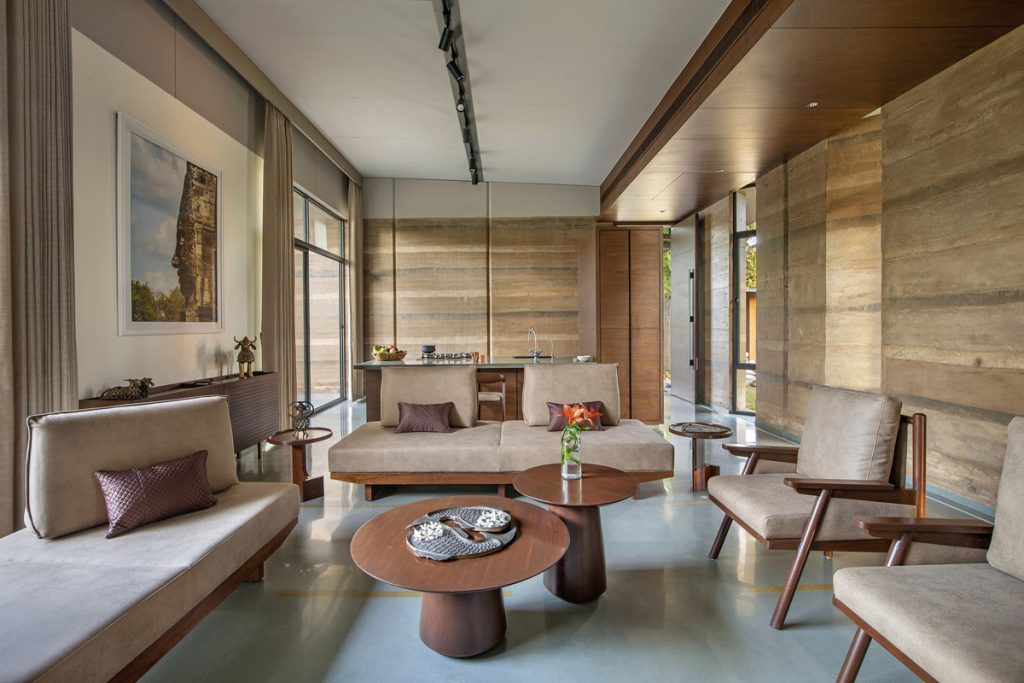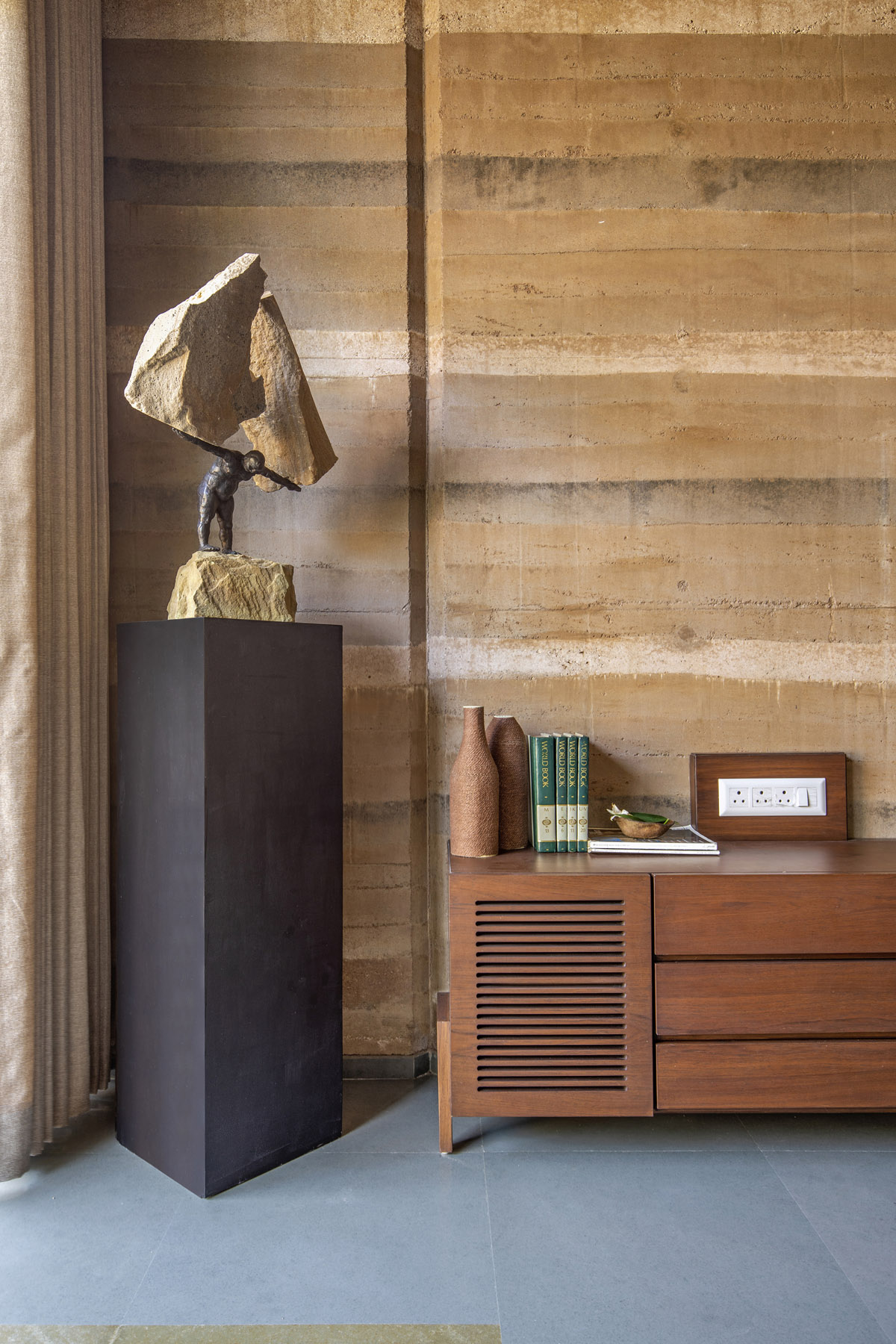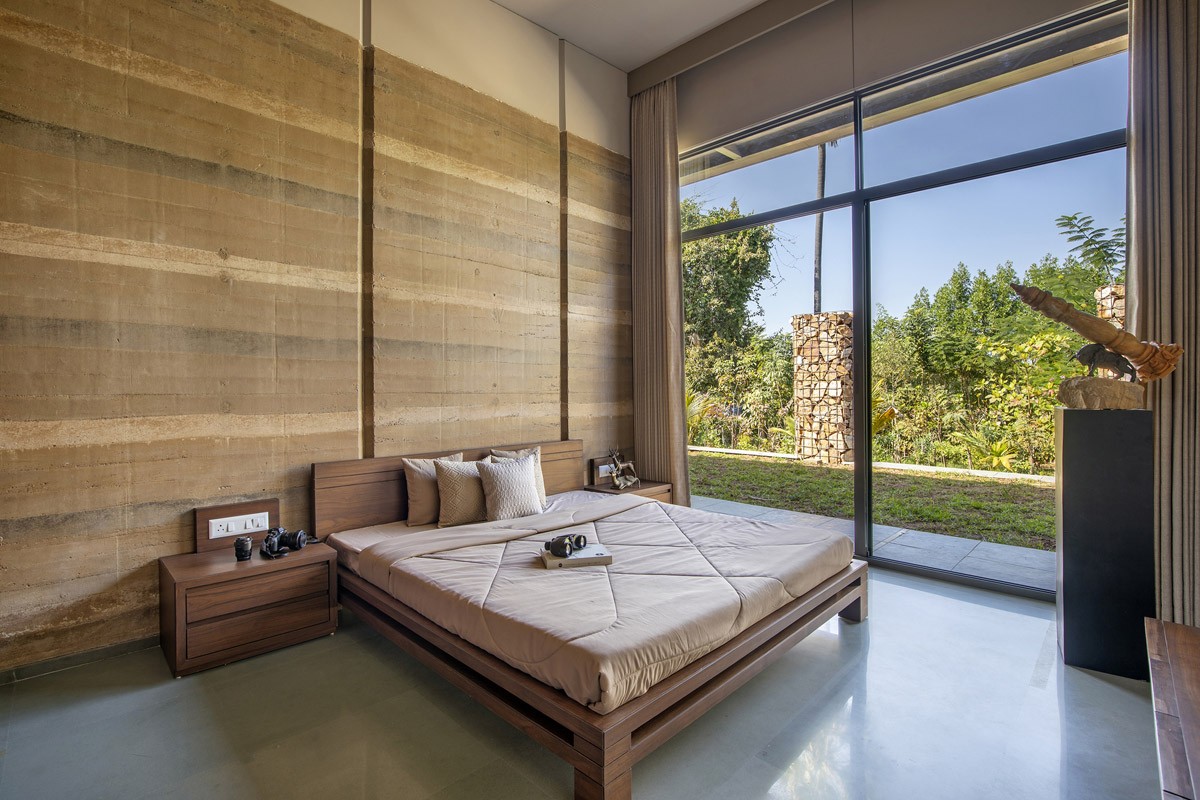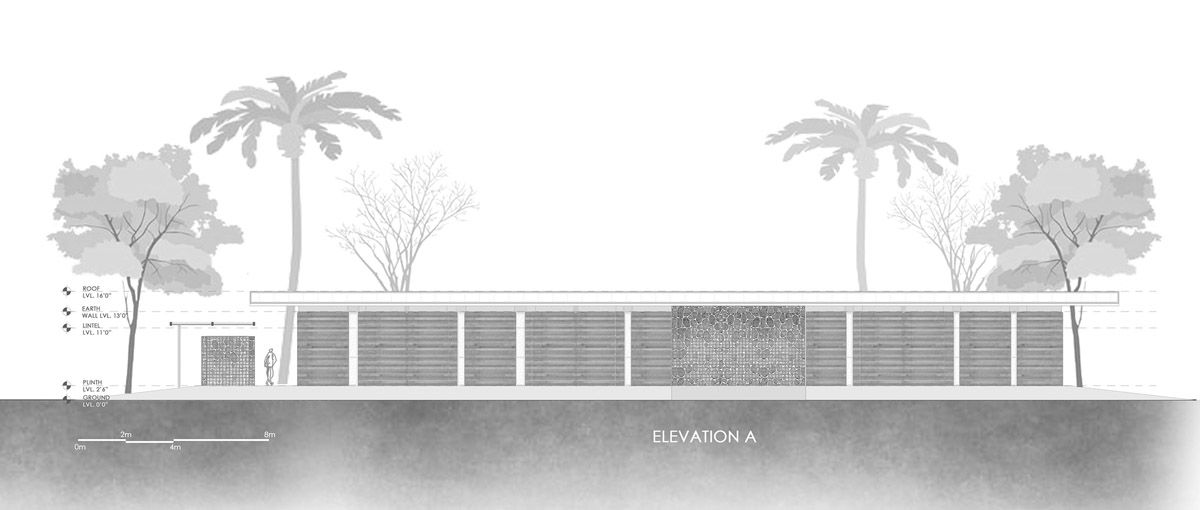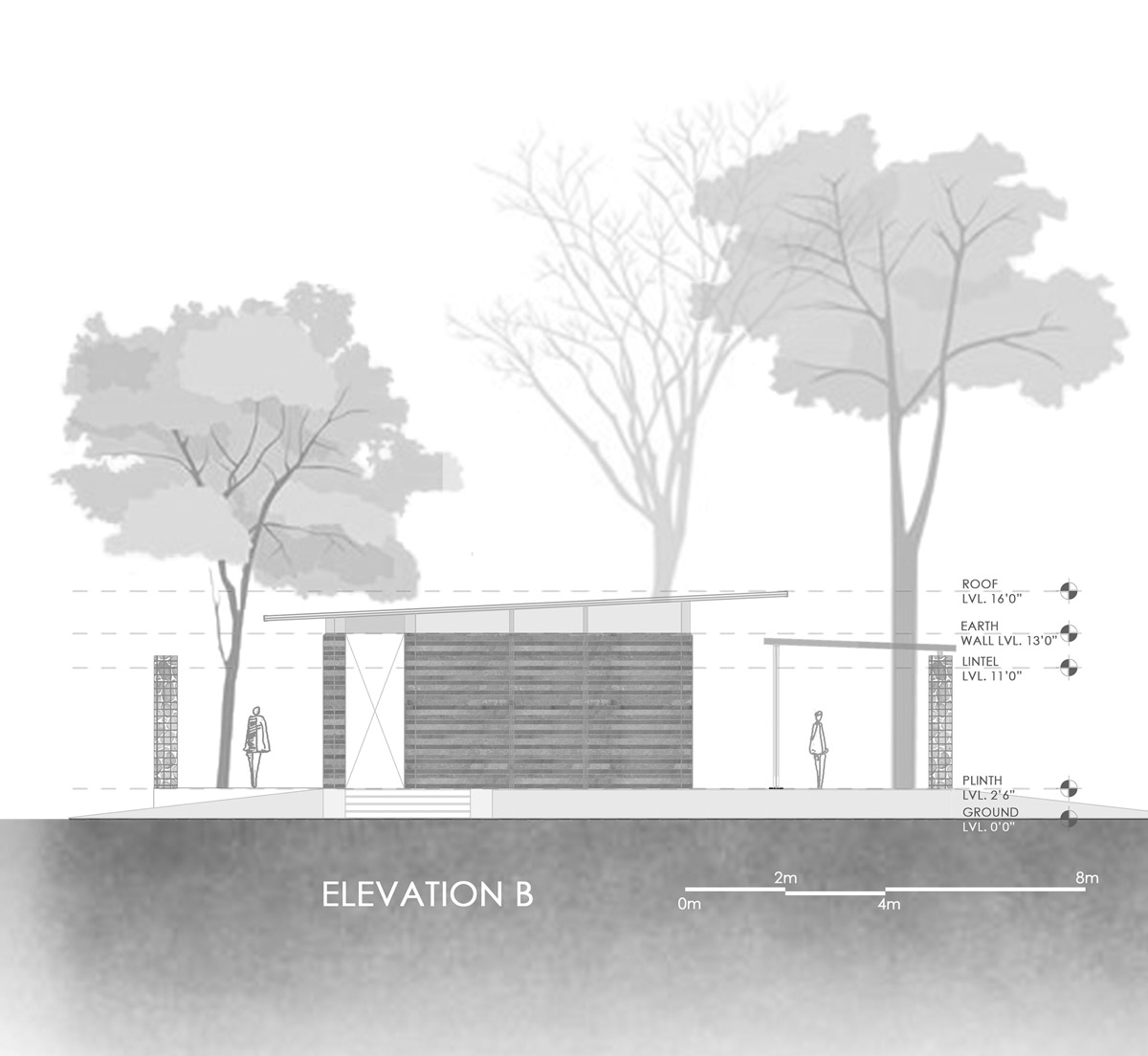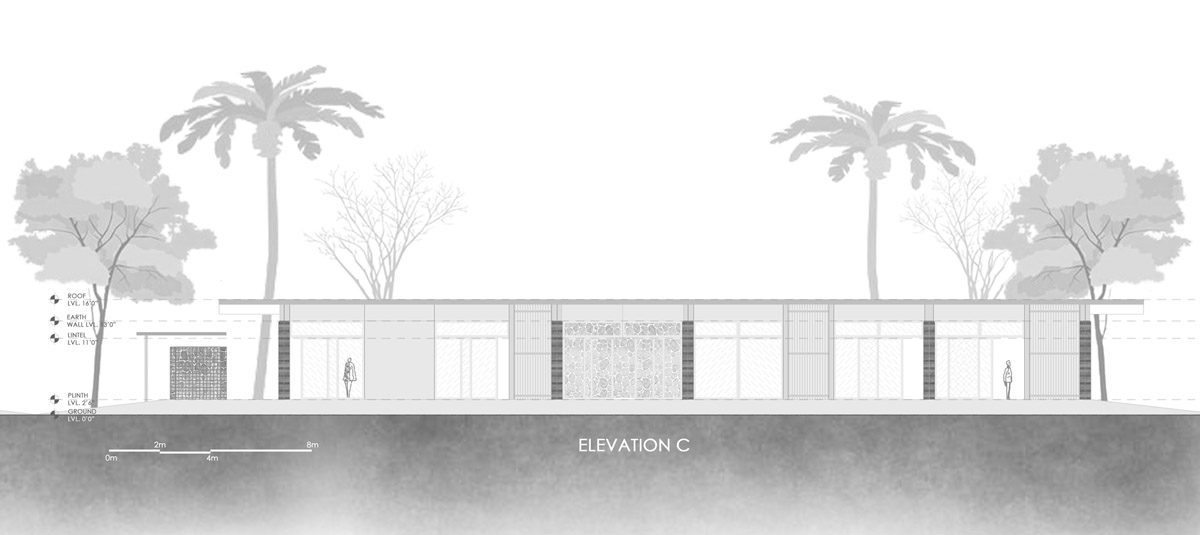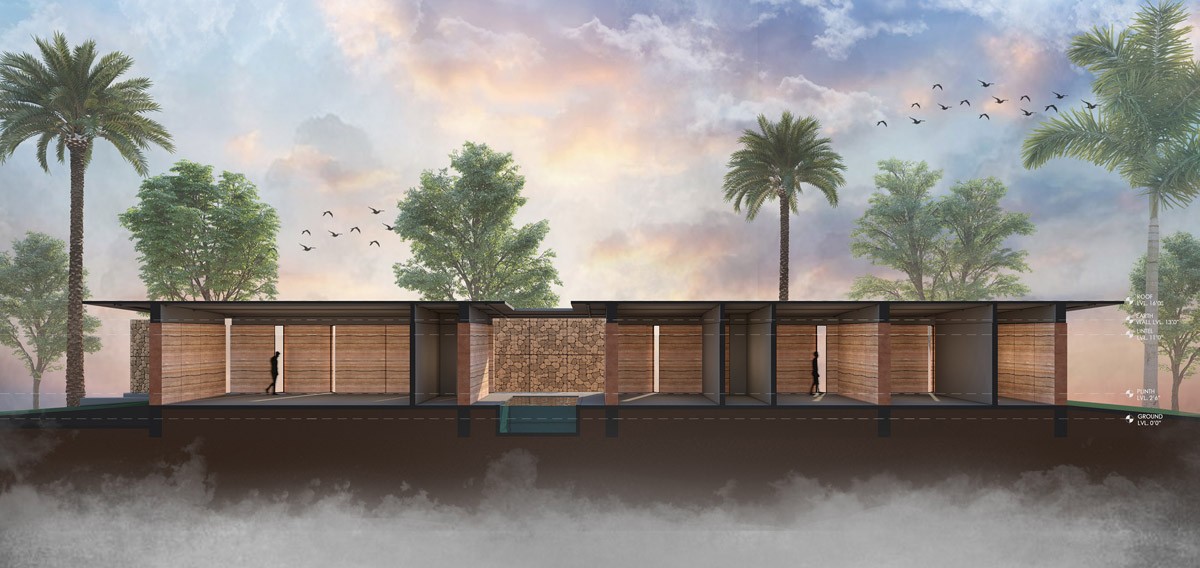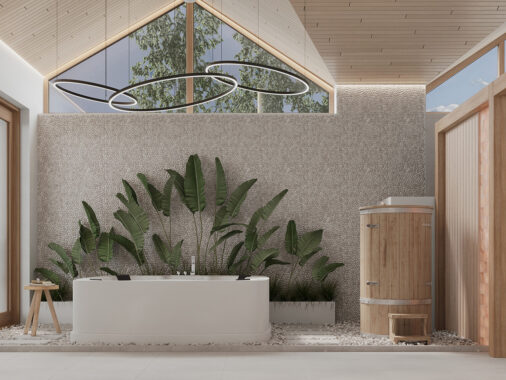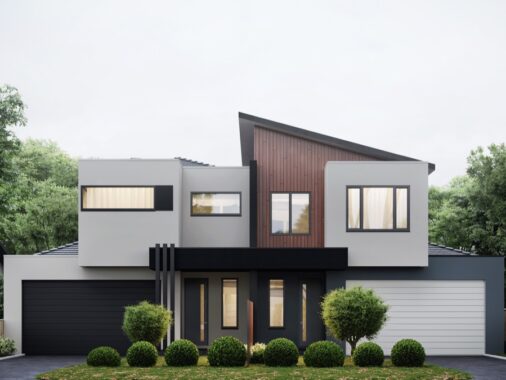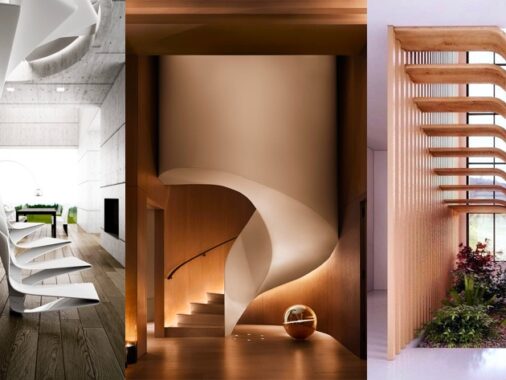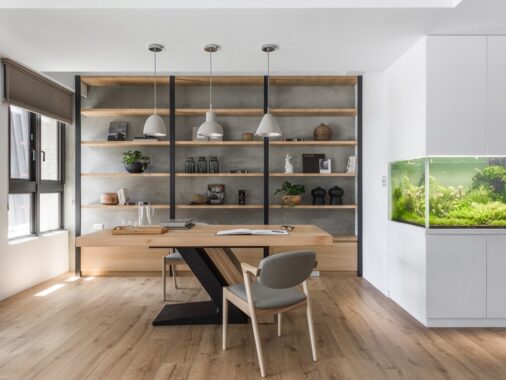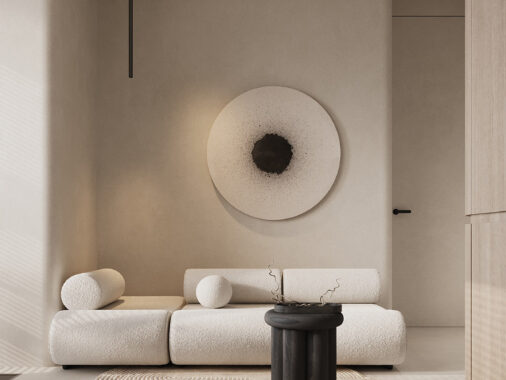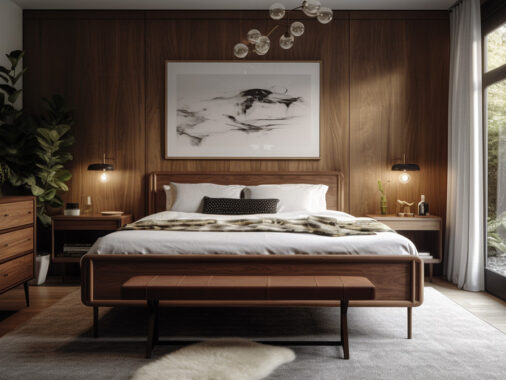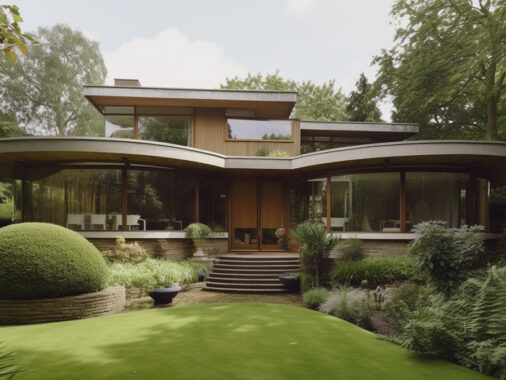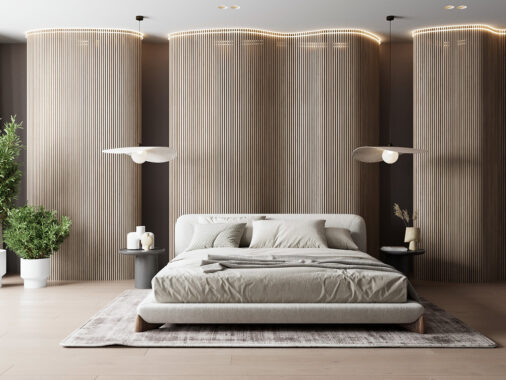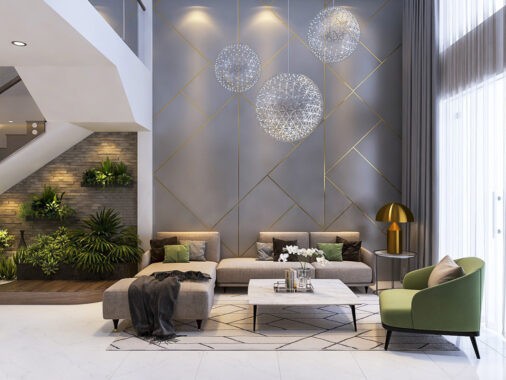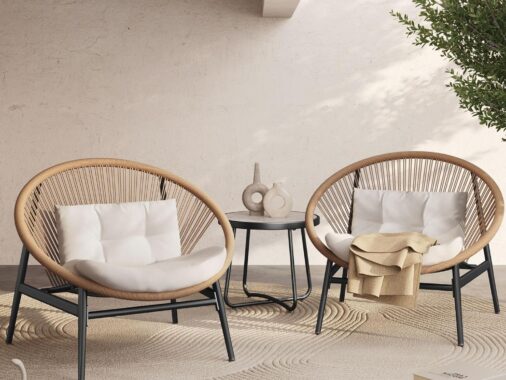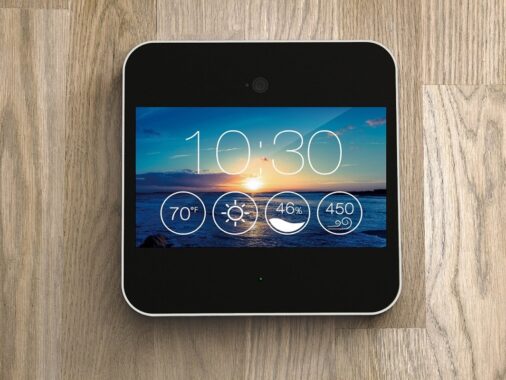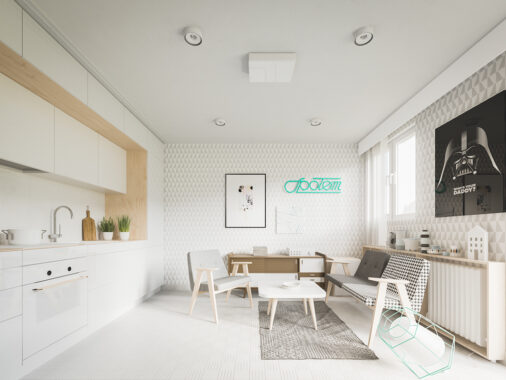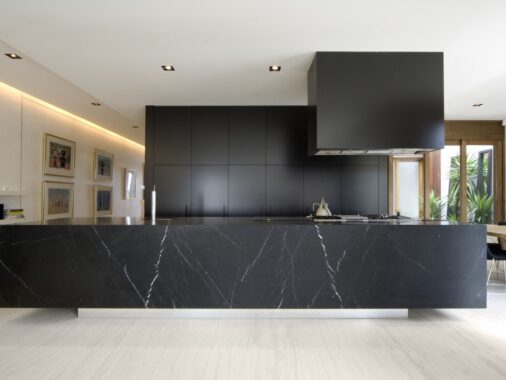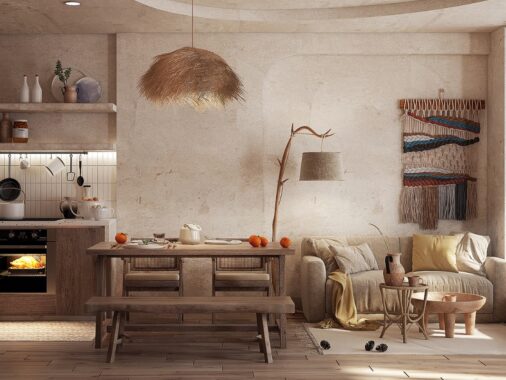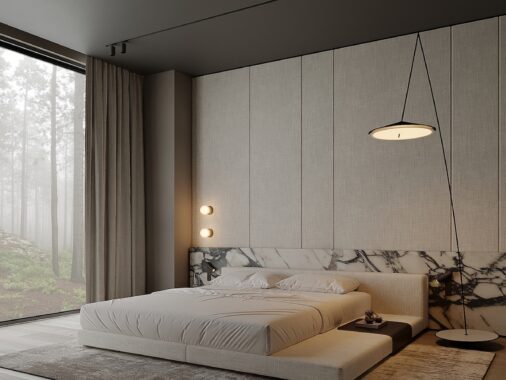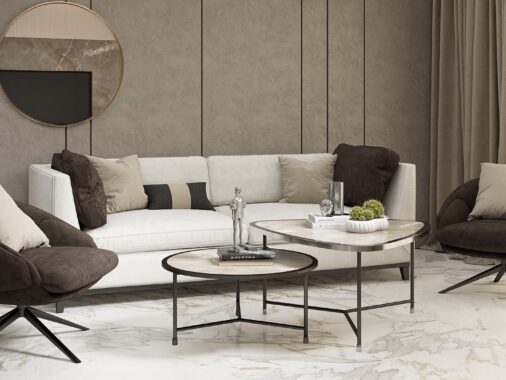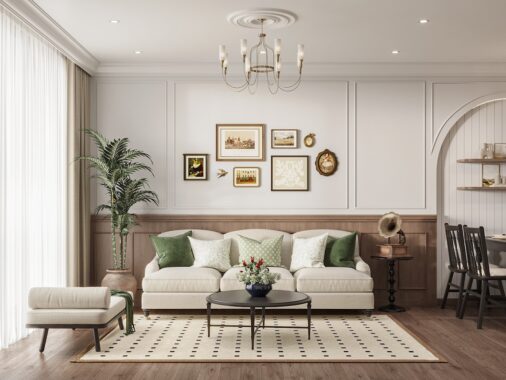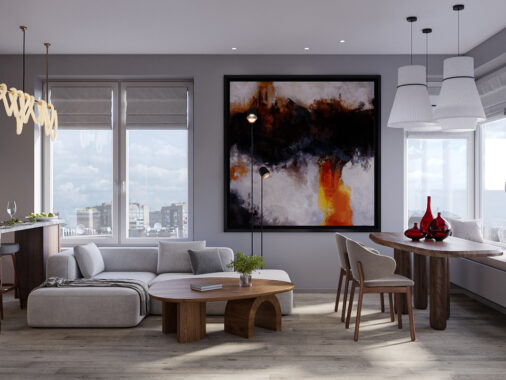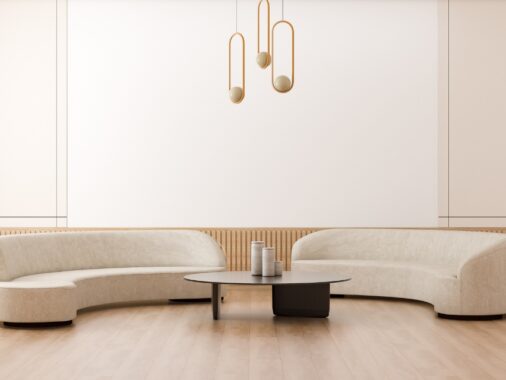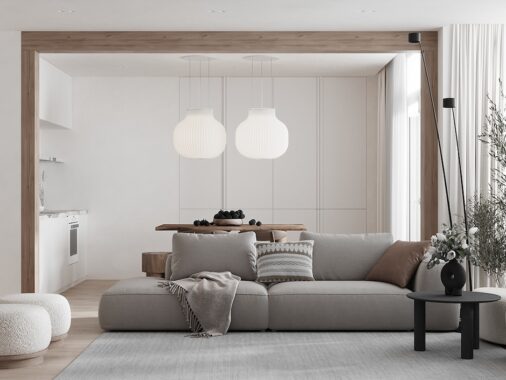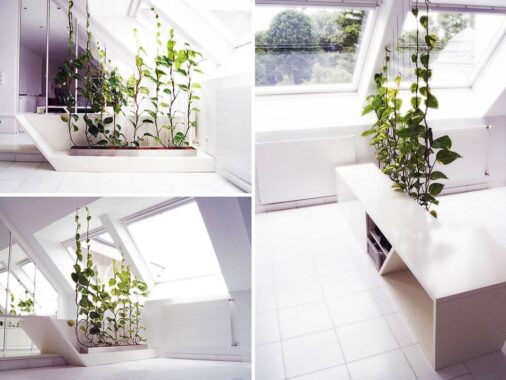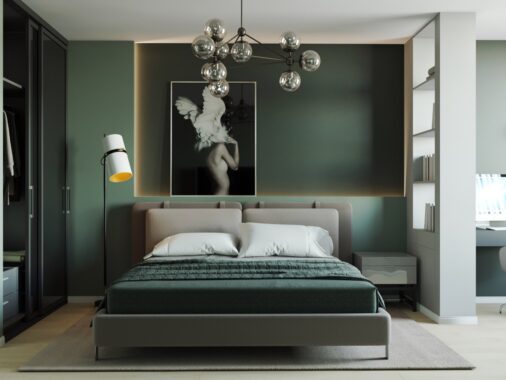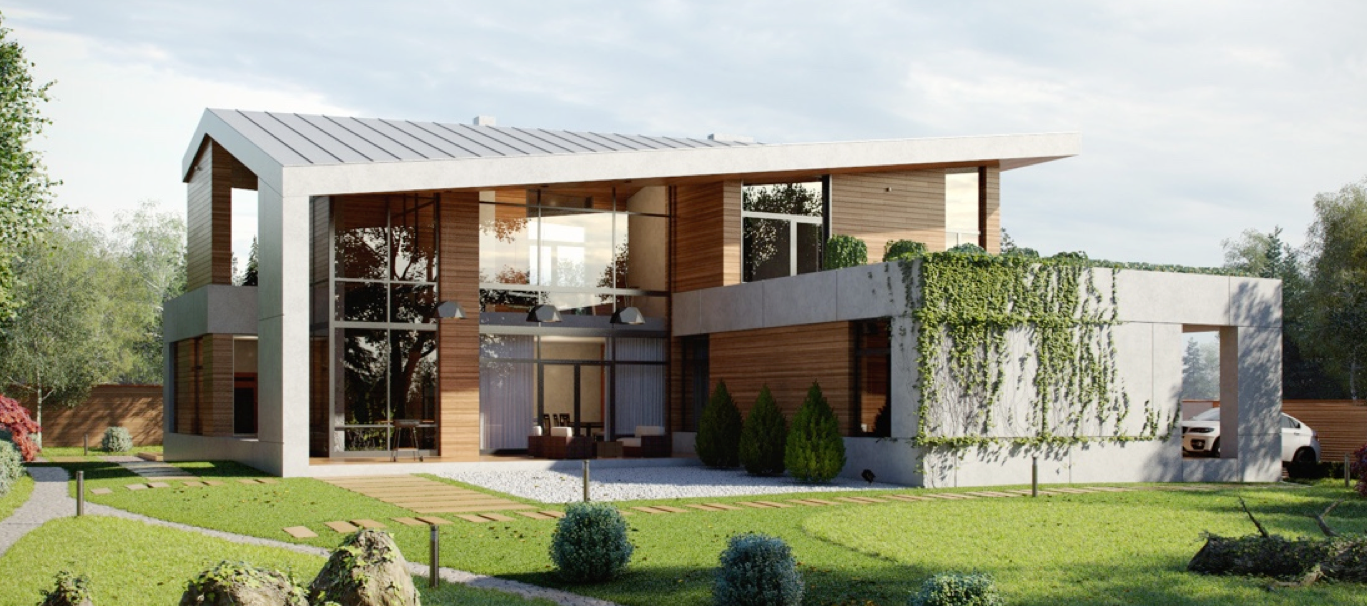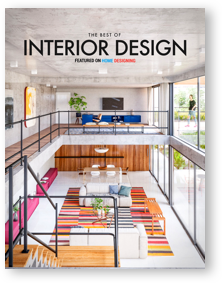The Earth House inspires a recall of sustainable living practices from our past. Created by Art and Architecture Associates, the 3000-square-foot house was designed to blend with the natural habitat amidst expansive farmlands. With a thick “skin” of rammed earth and other materials that were excavated from the site, the structure has reduced solar heat gain. This feature keeps the temperature between 7 and 10 degrees cooler than the tropical climate of Gujarat outside. Passive sustainable strategies reduce energy requirements in response to the global climate crisis. Both the facade and the interior of the three-bedroom home communicate a minimalist aesthetic with elements of nature woven through.
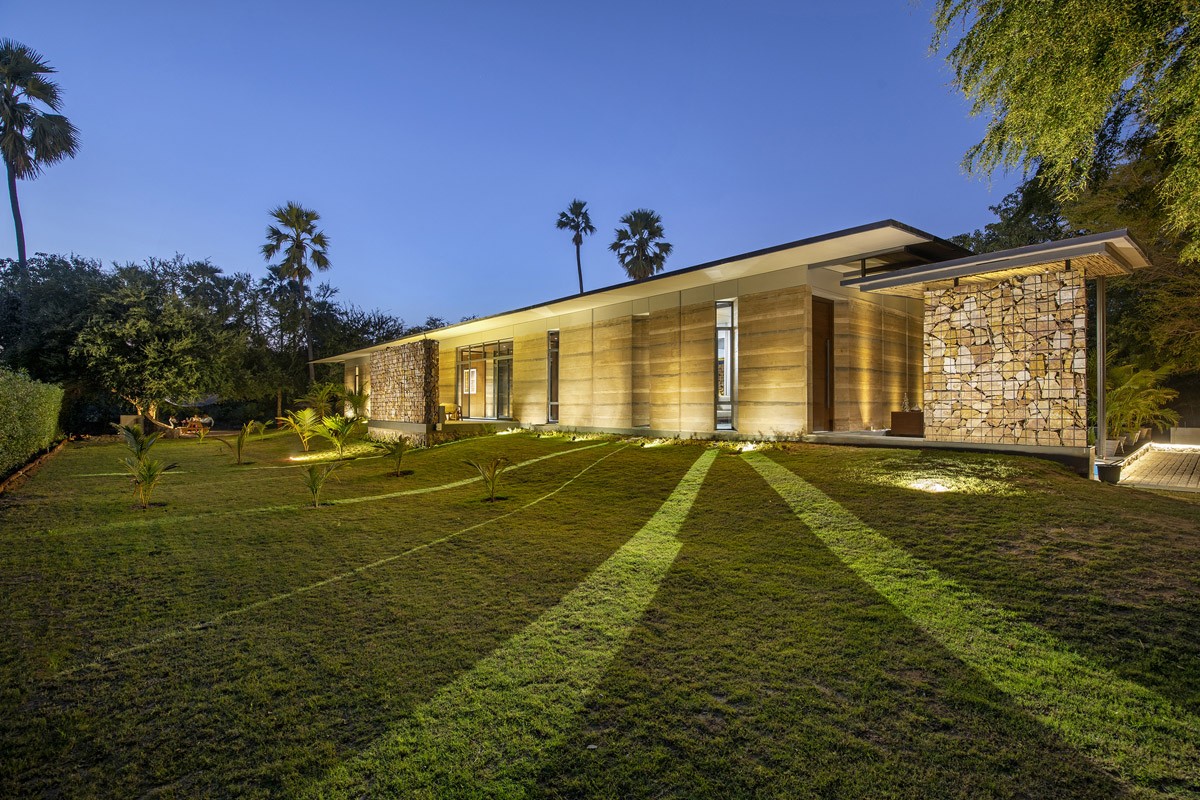
With climate change demanding a conscious effort to change the way we build and live, we must look to minimize our carbon footprint both at work and at home. The aim of being environmentally responsible and sustainable is at the heart of this modern home design.
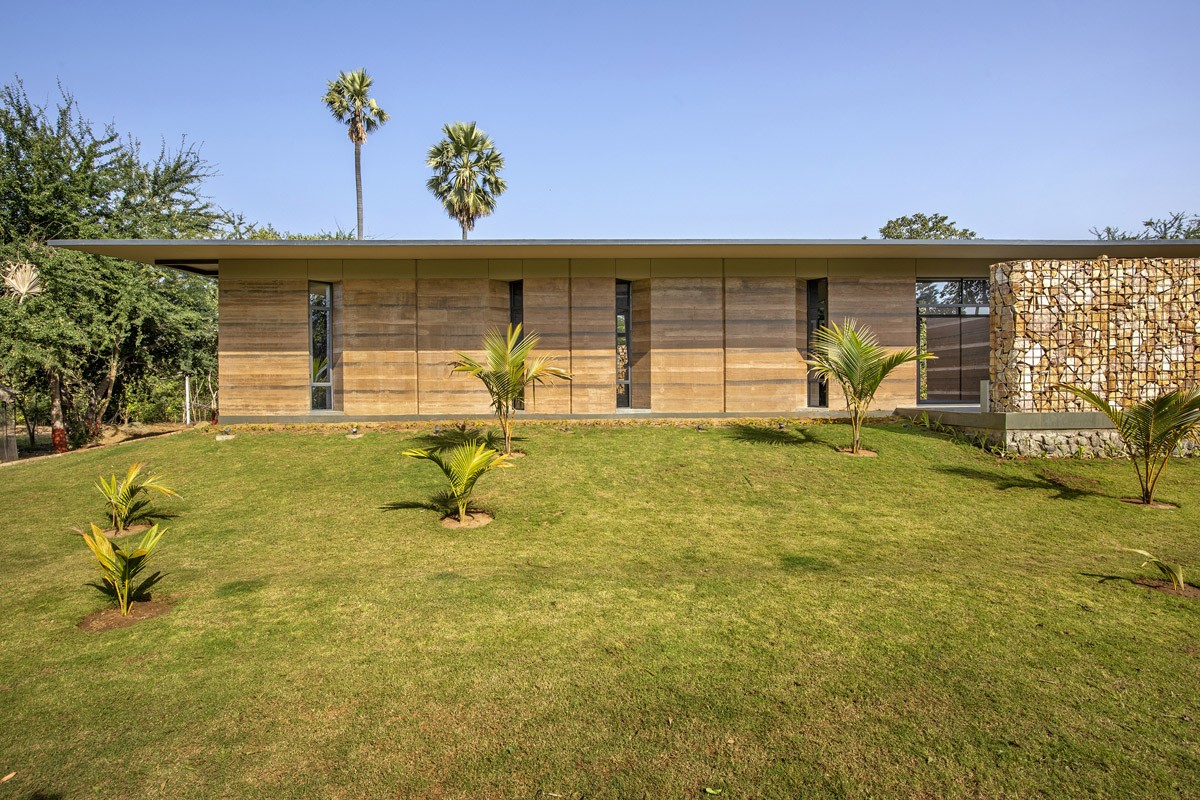
The landscape design drew inspiration from the native environment. Local plants were chosen to reduce irrigation needs and contribute to the passive energy strategy. The Earth House is surrounded by the Miyawaki forest, an organic farm, and a mango orchard. Tree foliage shades the roof, which helpfully reduces solar heat gain in the home.
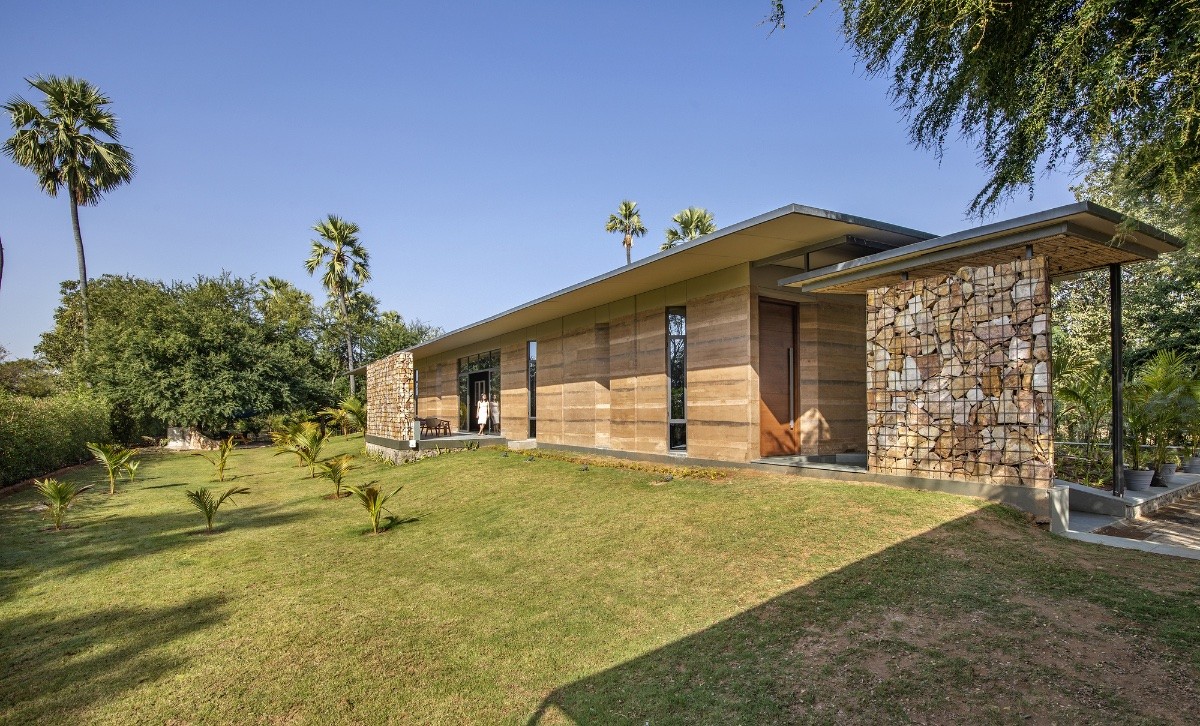
The home plan was optimized to create a minimal footprint on the green site. The roof of the net-zero home is inclined to receive maximum solar energy for the family’s use.
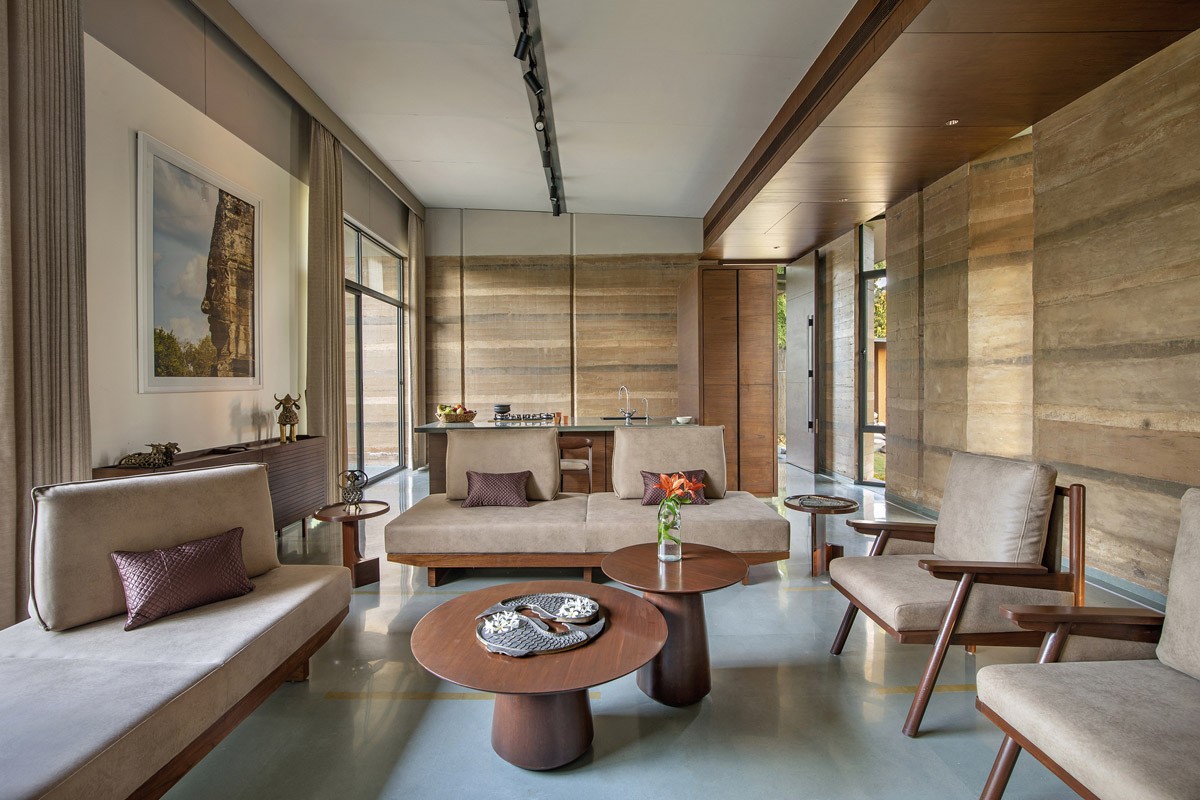
Inside the home, a modest living space gains visual warmth and texture from the raw earth wall construction. One half of the living room holds a social sitting area with wooden coffee tables and a matching wooden lounge set. The other half of the space belongs to a kitchen diner.
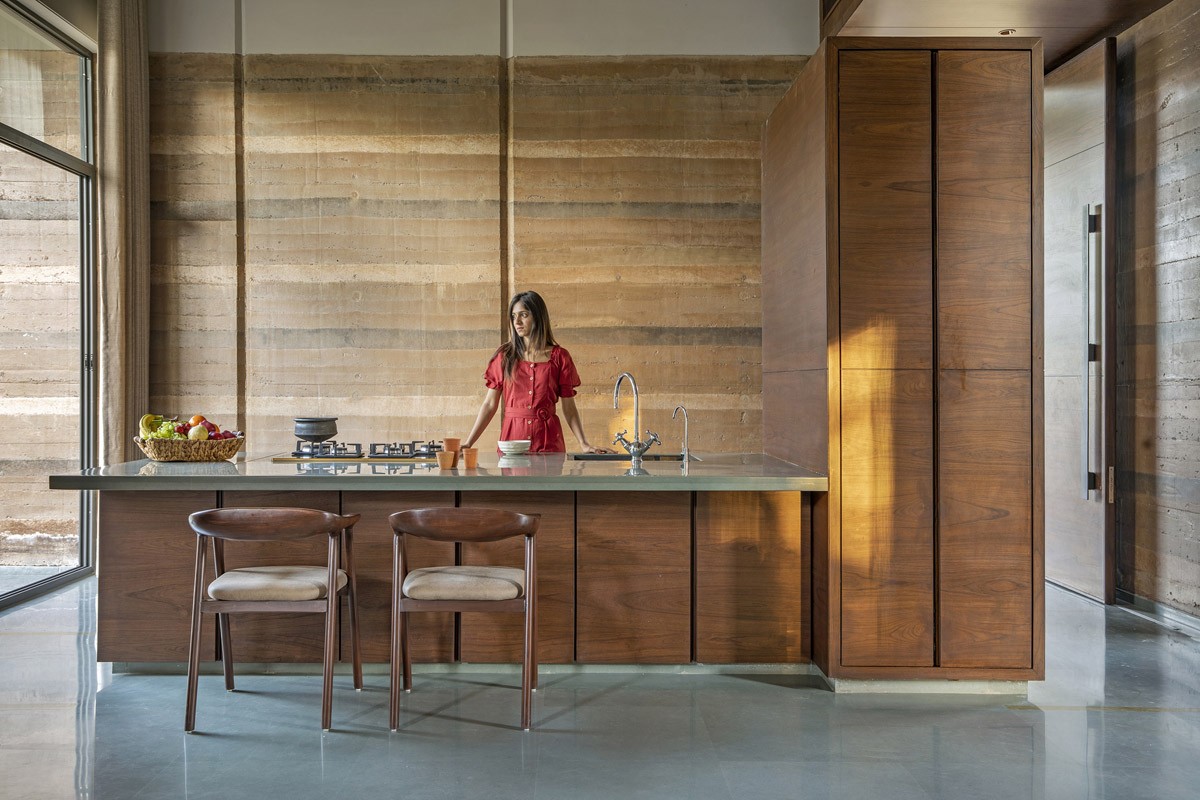
Rich wood tone shapes a simple kitchen design with a wide cooking and dining peninsula. The rest of the kitchen storage is tucked into a single tower of cabinets at one end.
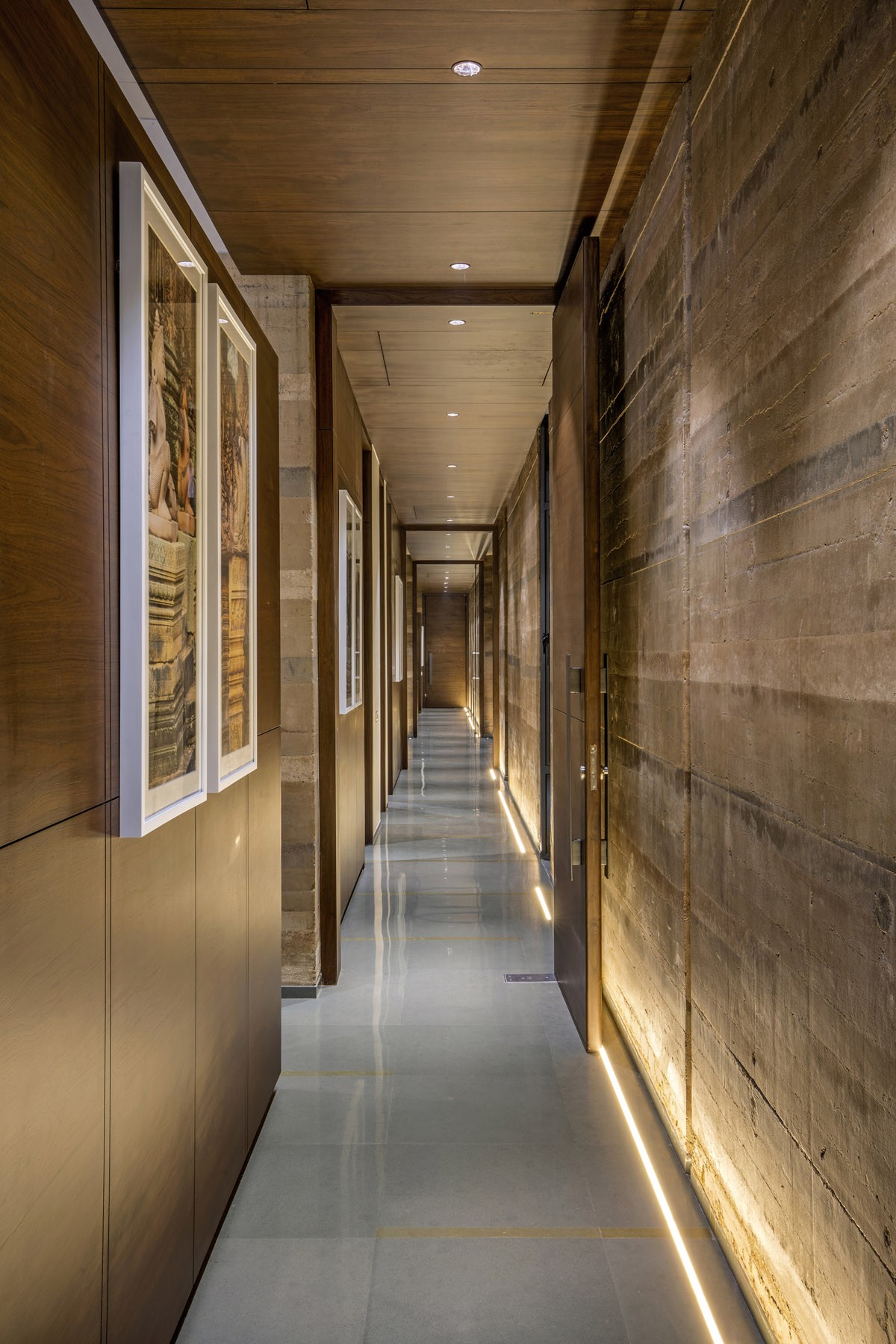
Glossy tiles run the length of the hallway. LED strips glow brightly from the edge of the reflective floor, creating a warm and luxurious atmosphere.
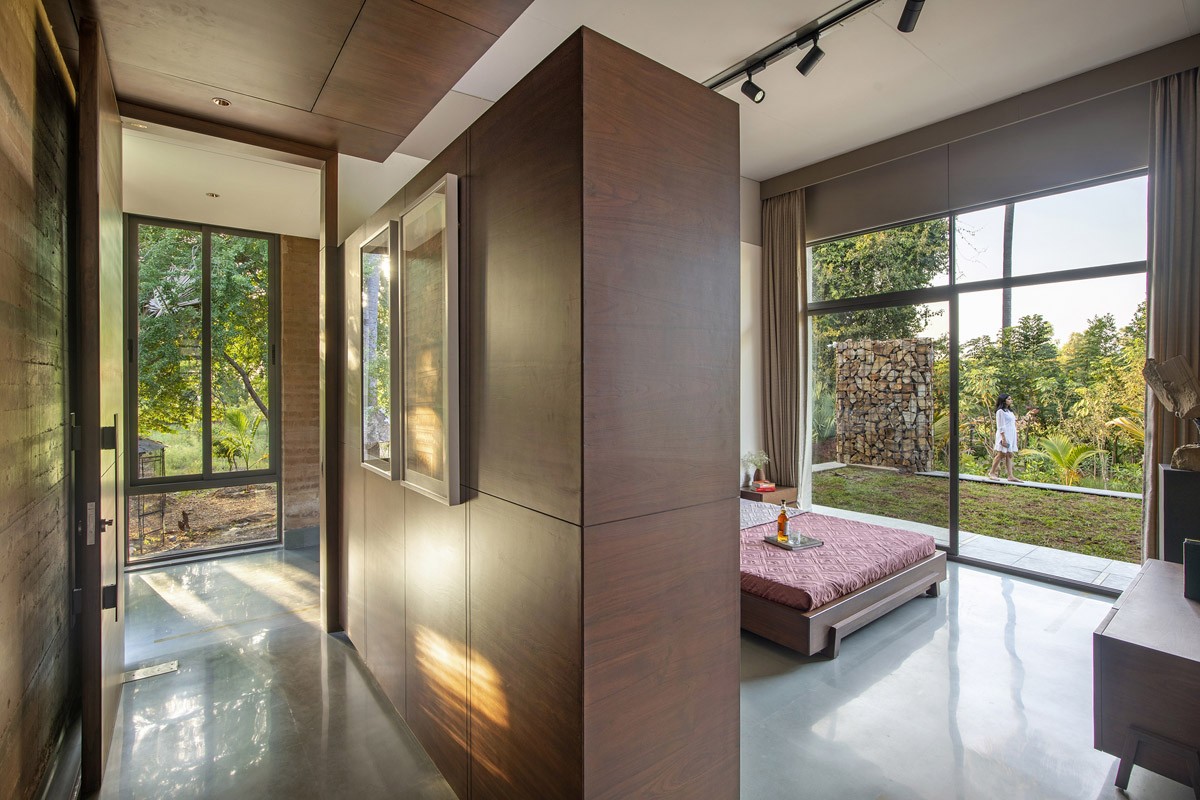
The long corridor leads to three bedrooms. Upon entering a bedroom, the sleep space is privately tucked away from the door by a wood encased storage wall.
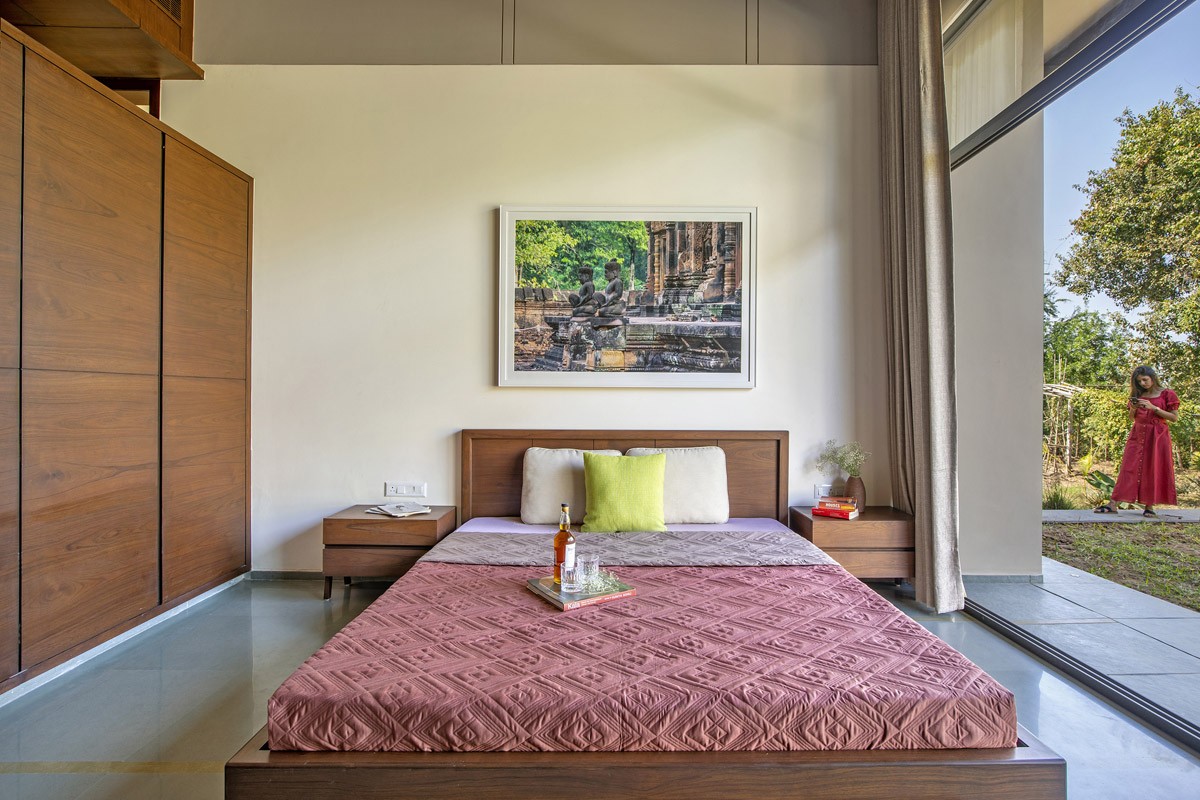
Like the rest of the interior, furniture materials inside the modern bedroom were sourced from companies that utilize recycled materials and employ environmentally responsible manufacturing techniques.
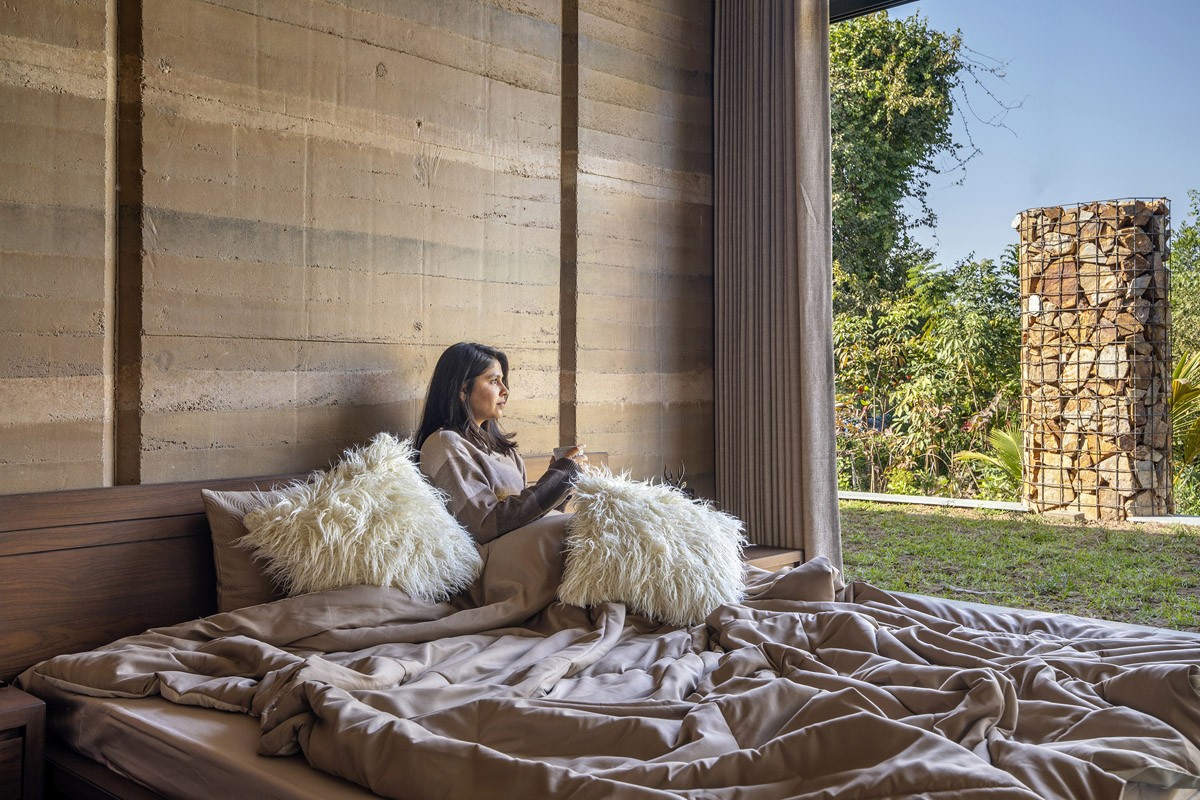
Large windows face north in order to receive optimum daylight and natural ventilation, which passively reduces energy requirements.
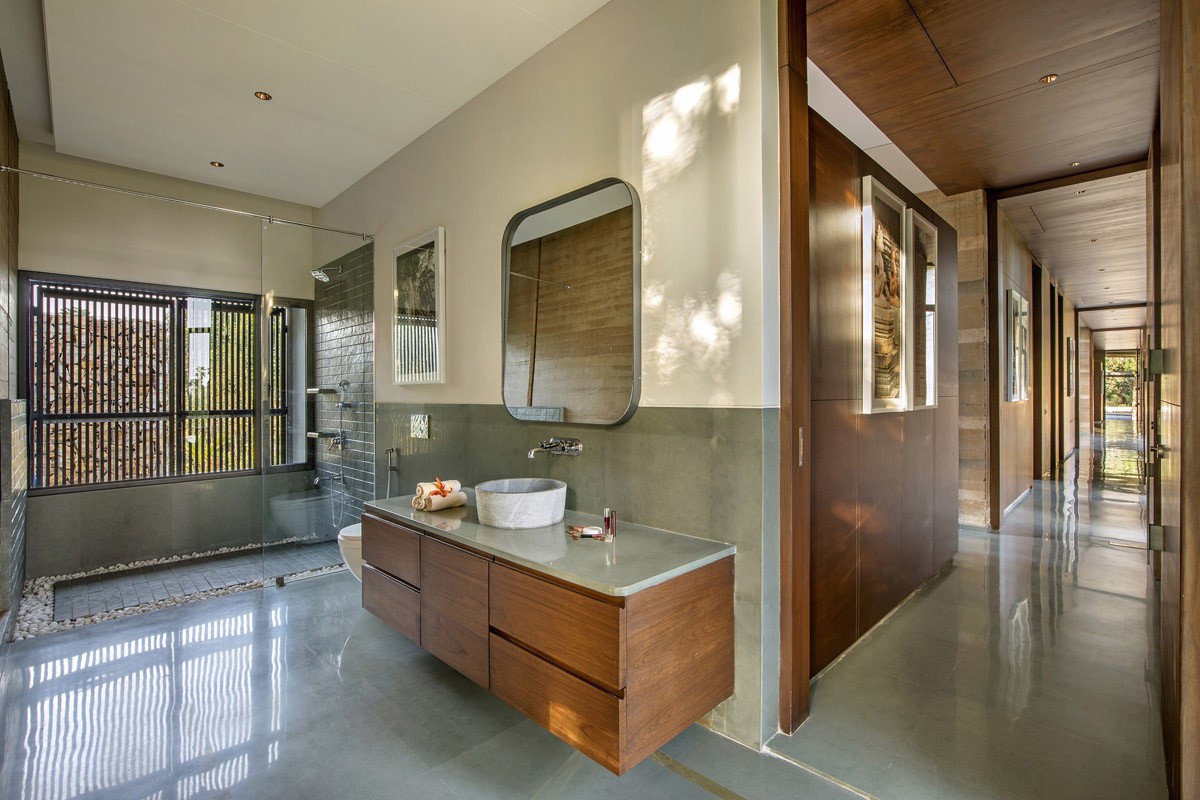
The end of the long corridor finally reaches a luxury bathroom. A large shower area floats upon a bed of pebbles. Sunlight filters through striking window shutters.
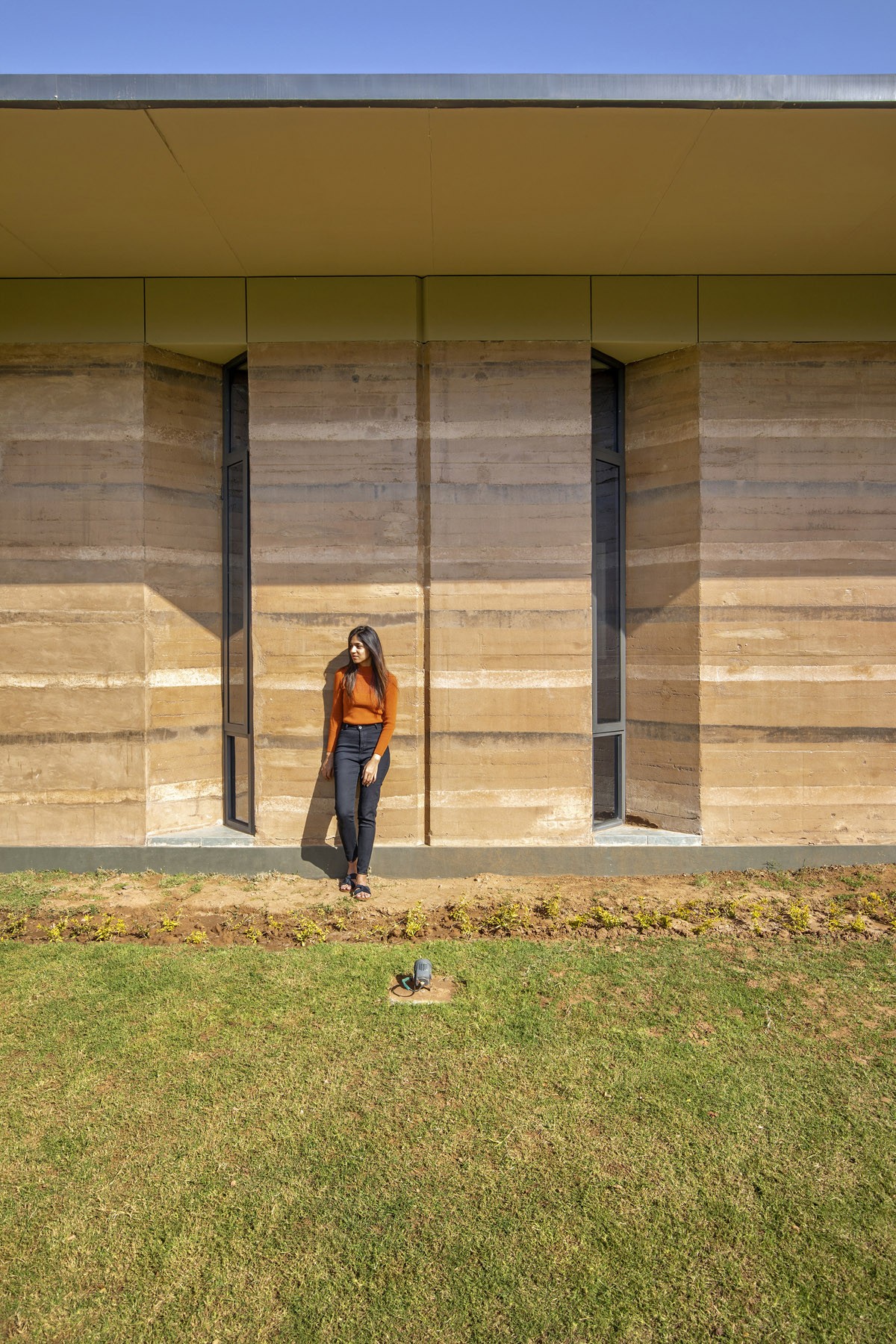
As well as generating electricity from solar, this sustainable country house grows its own food, and harvests water from plentiful rainfall.
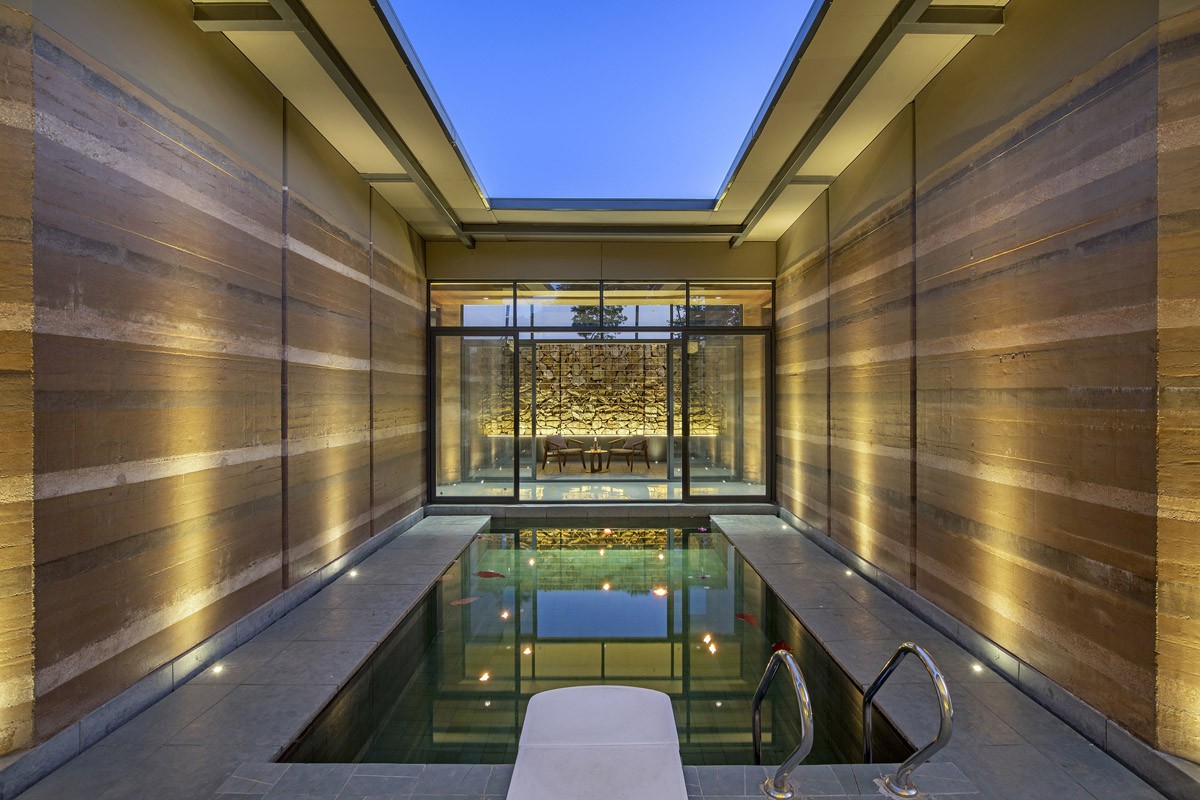
The three bedrooms are separated from the social living space by a central leisure area that consists of a pool, gazebo, and patio area.
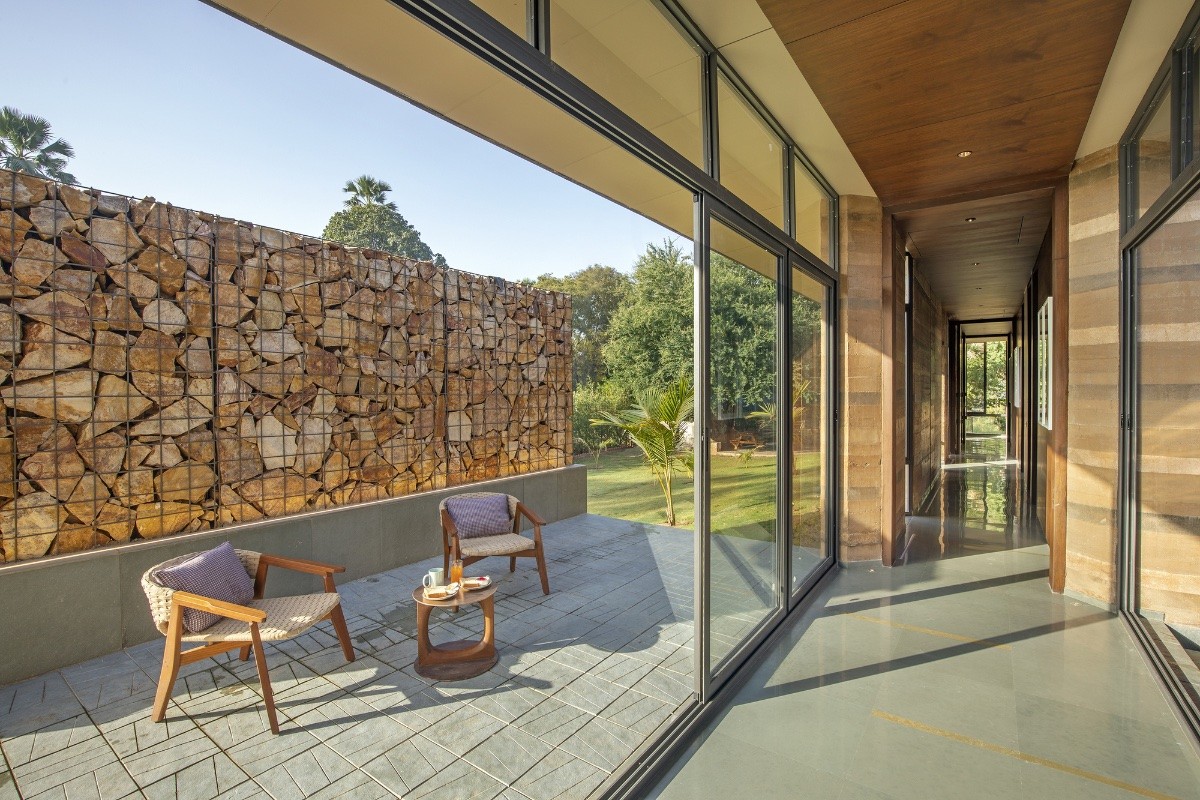
Readily available local rocks fill gabion walls out on the patio. The walls provide privacy and sculptural moments around the house. Two outdoor chairs and a small coffee table make a sweet conversation spot.
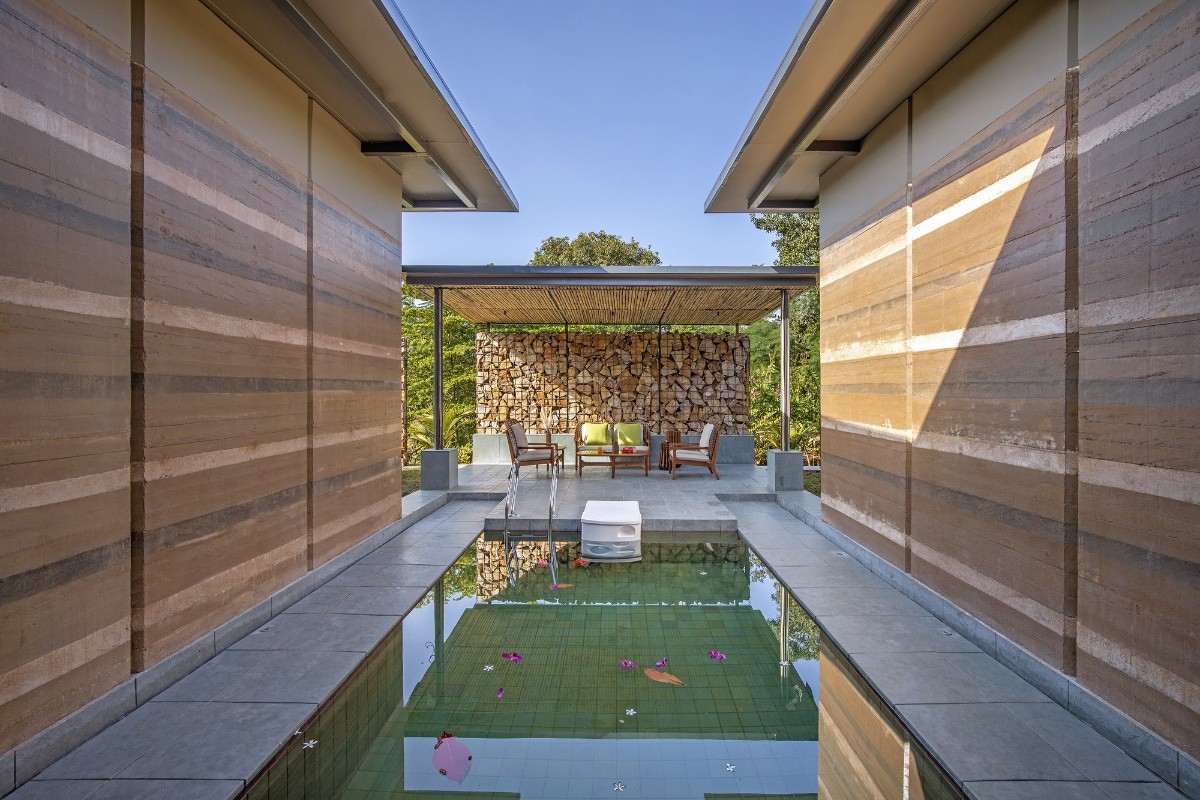
Moving away from the patio to the opposite end of the pool, a gazebo offers cool, shaded comfort out on a more spacious terrace area.
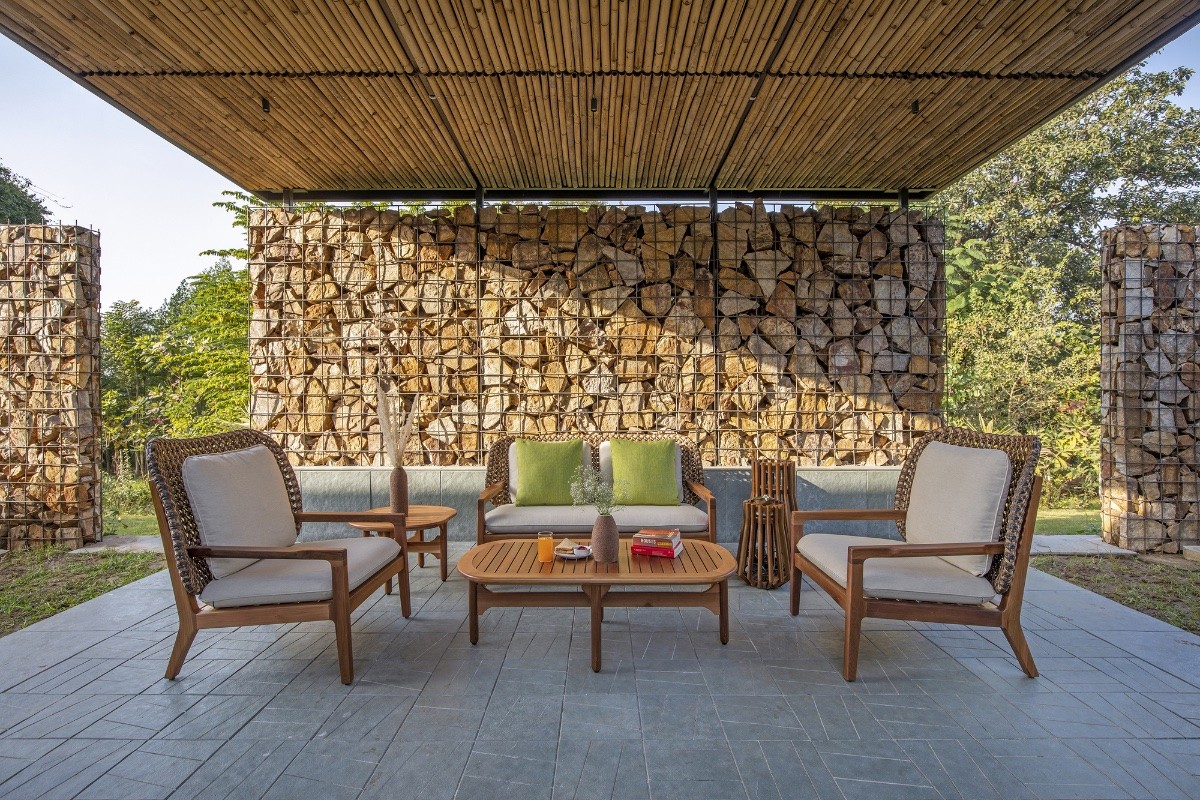
Two cushioned chairs and a small settee make up an outdoor lounge in the gazebo. An outdoor coffee table and a small wooden side table provide landing spots for drinks and snacks. Green accent cushions draw inspiration from the surrounding landscape that peeps between gabion walls.
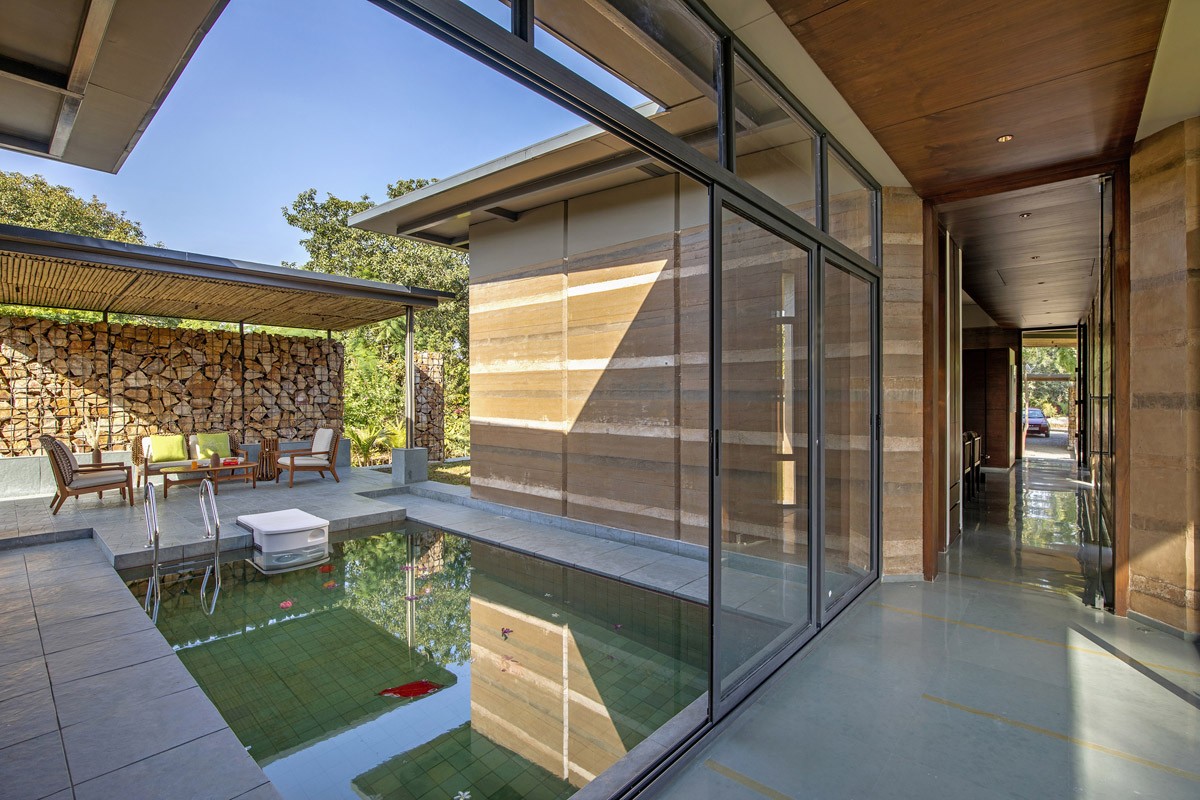
Glass doors provide one uninterrupted visual from the shaded poolside sitting area to the hallway of the home, and on toward the sun drenched patio.
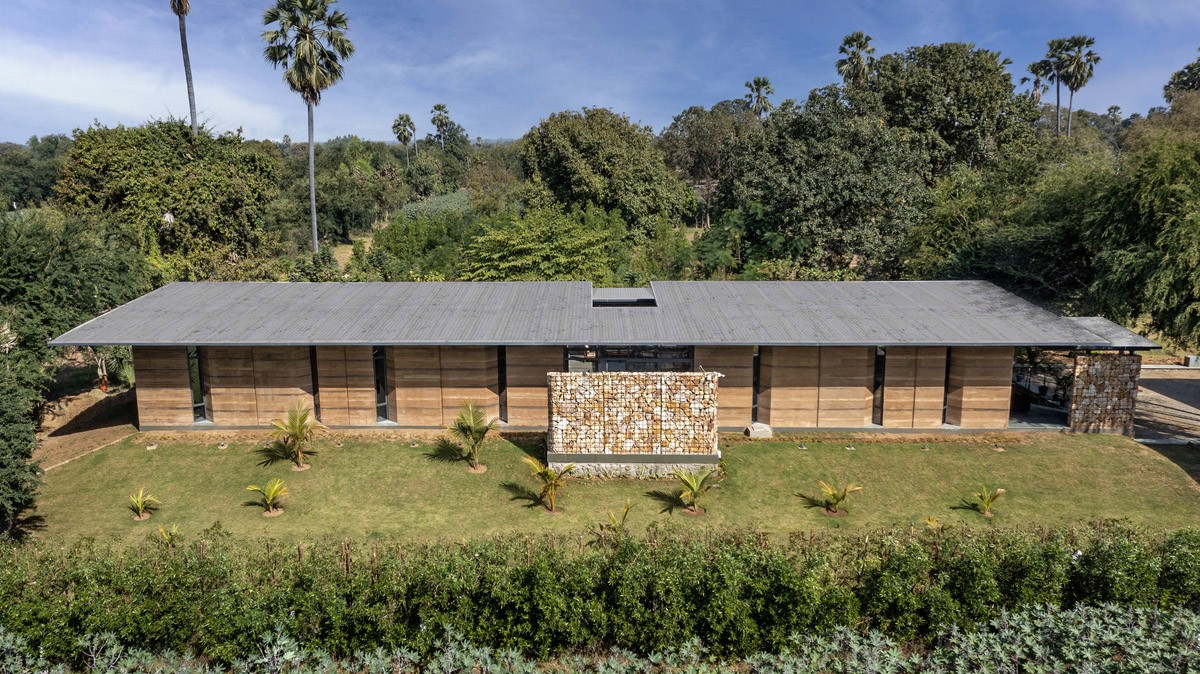
From the outer perimeter of the home, the outdoor sitting areas and pool area are shielded from immediate view by the rock-filled gabion walls. The roof level skims low beneath the tree tops to bed the house sympathetically within its lush landscape.
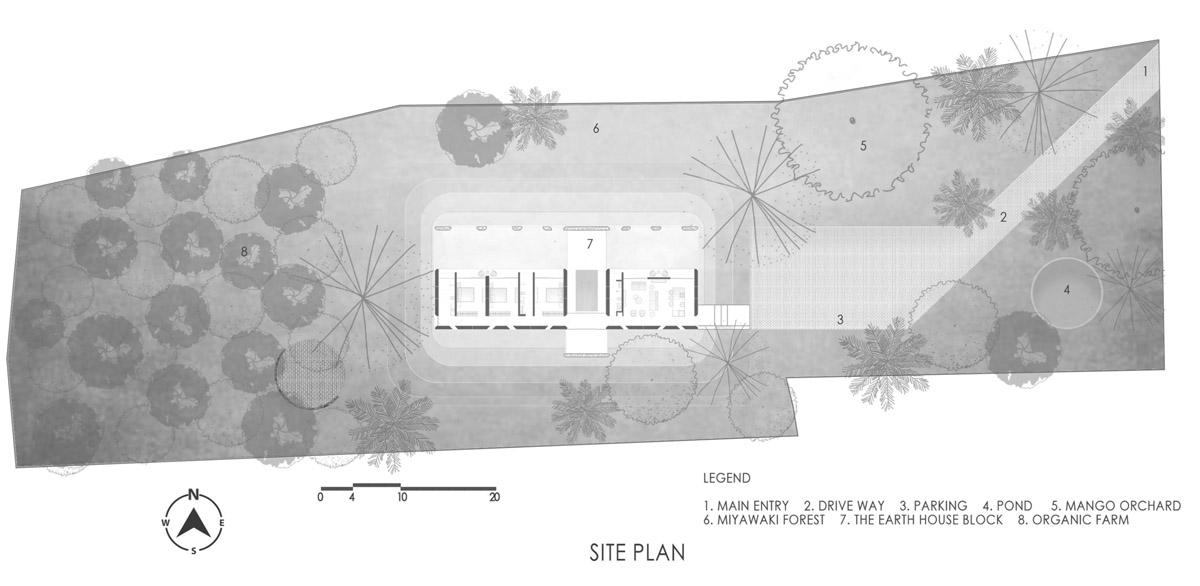
On the site plan, we can see how the entry to the property leads via a long shaded driveway that moves between established trees. It passes the mango orchard on one side and a picturesque pond on the other. The narrow driveway opens out into a large parking area on the east side of the house. The organic farm that feeds the household is located to the west.
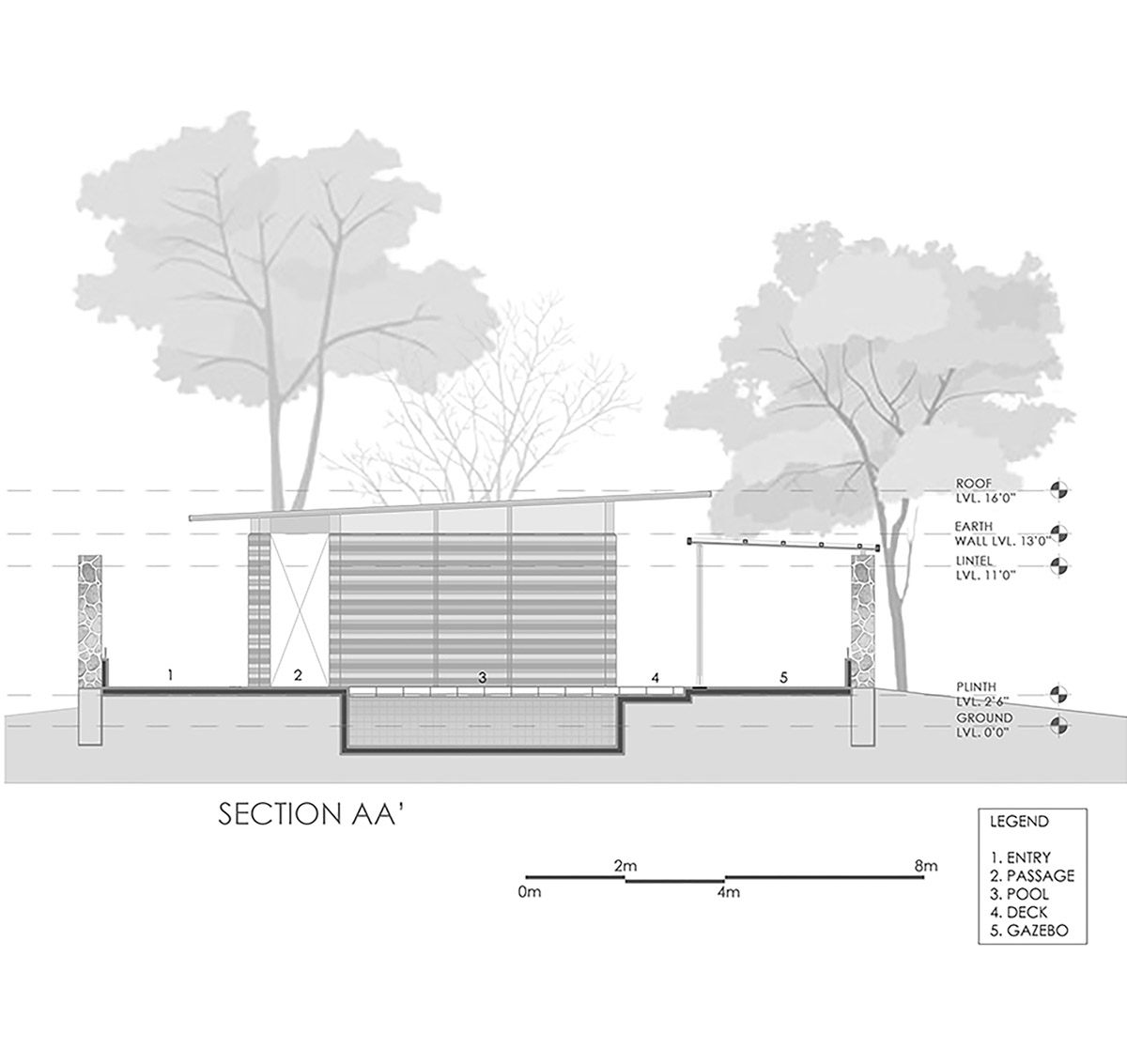
Section drawing AA of this active sustainable design illustrates the roof incline that maximizes generation of solar power for the home.
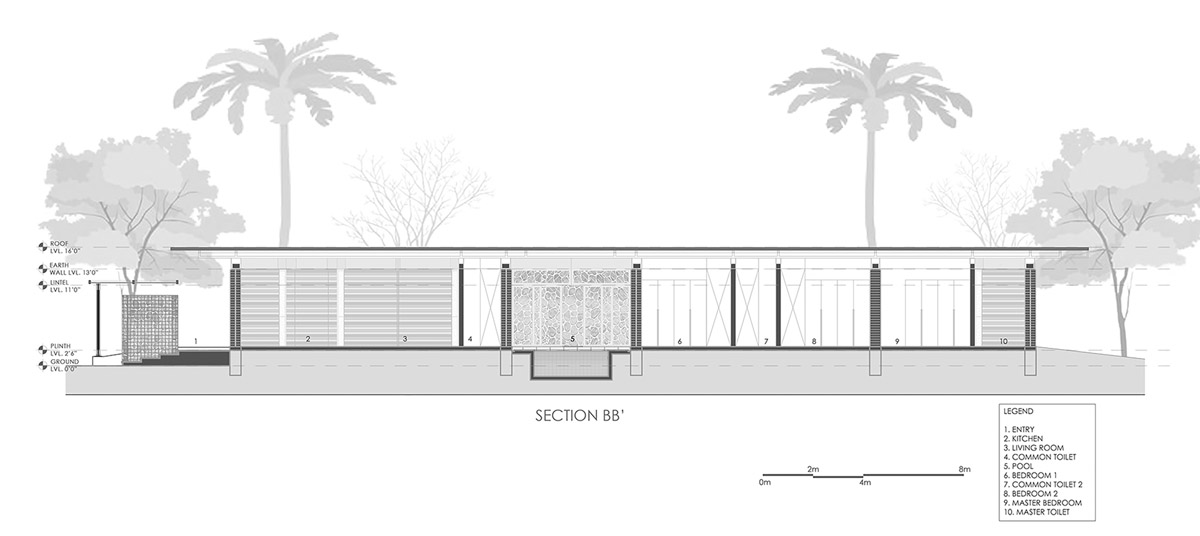
Section drawing BB provides insight to the full layout and flow. With entry to the home made beside the kitchen, guests are welcomed straight into the social living space. A guest bathroom is slotted between the living room and the leisure space with pool.
